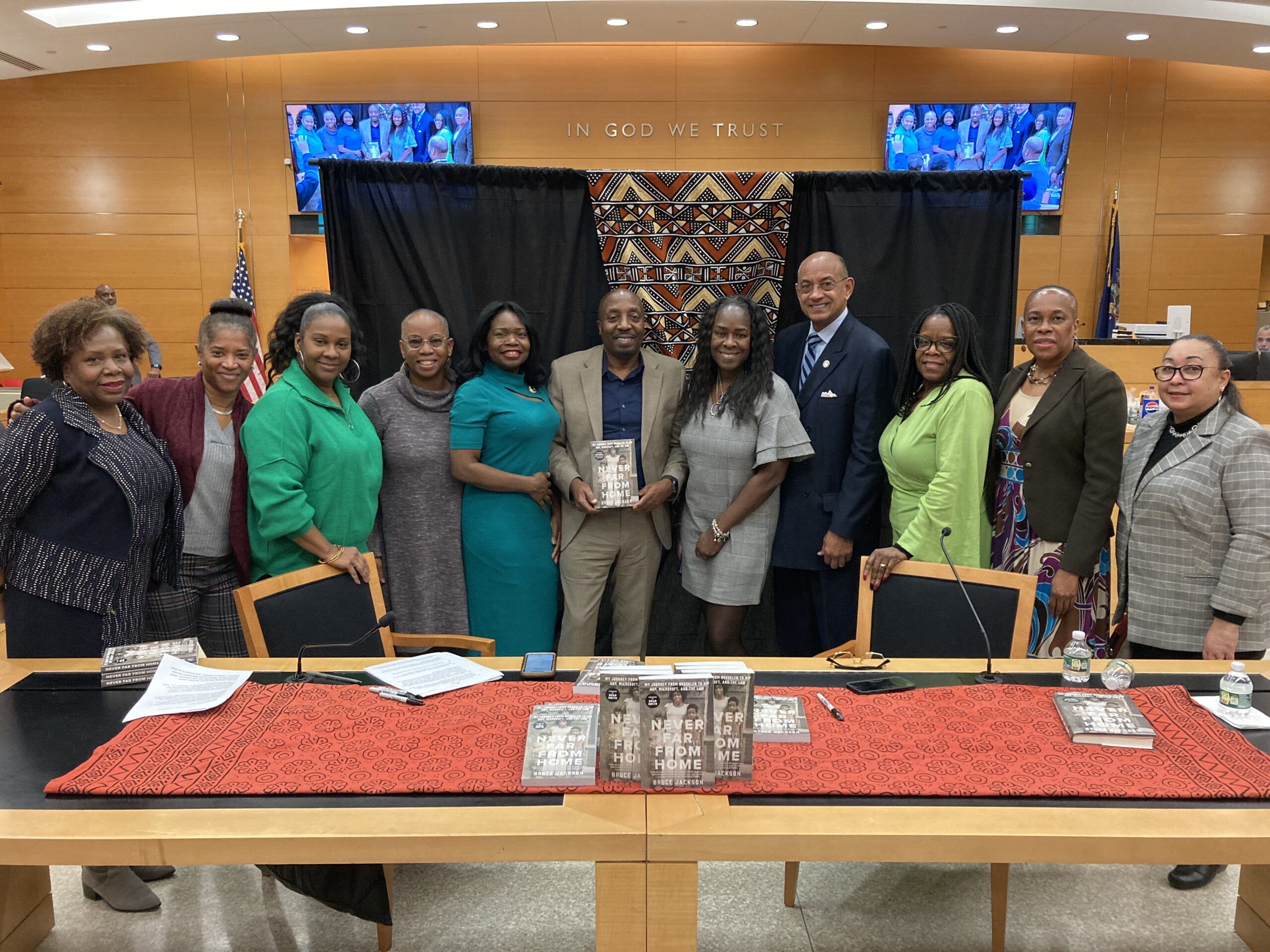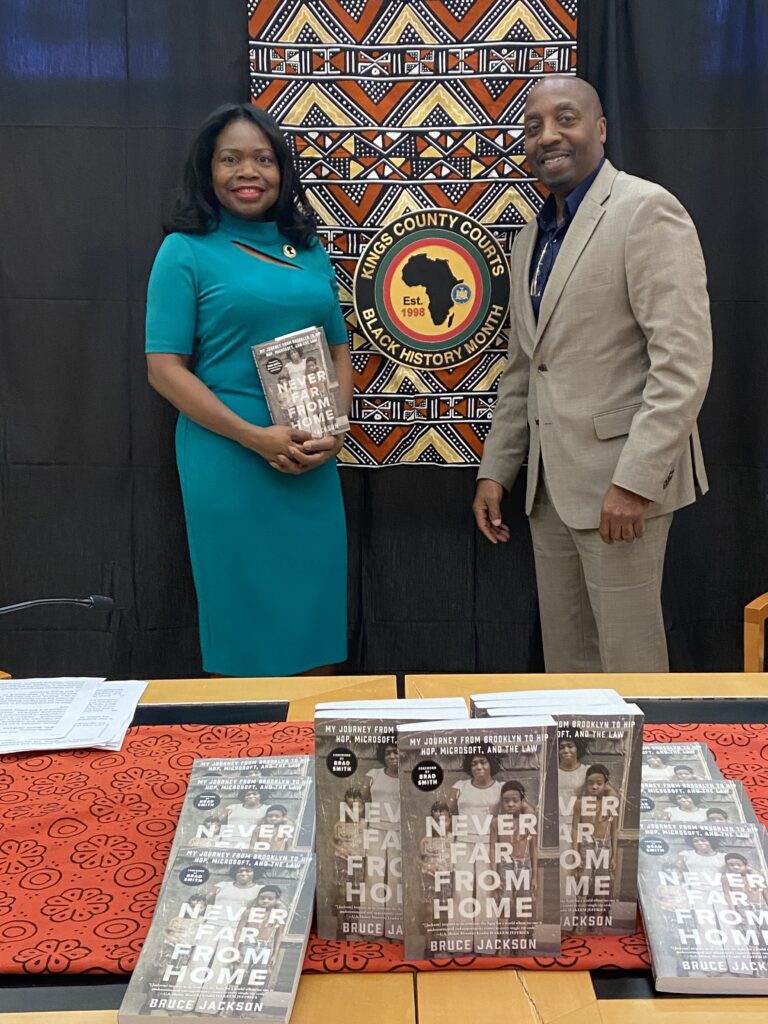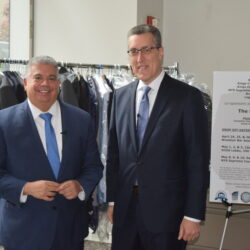
Bruce Jackson’s inspiring journey through law, hip hop and diversity advocacy

Bruce Jackson, central figure, stands with the Kings County Courts Black History Month Committee, gathered as part of the courts' Black History Month celebration where Judge Edwards interviewed him, highlighting his impactful journey and contributions.
Photo: Robert Abruzzese/Brooklyn Eagle
Photo: Robert Abruzzese/Brooklyn Eagle
Leave a Comment
Leave a Comment




